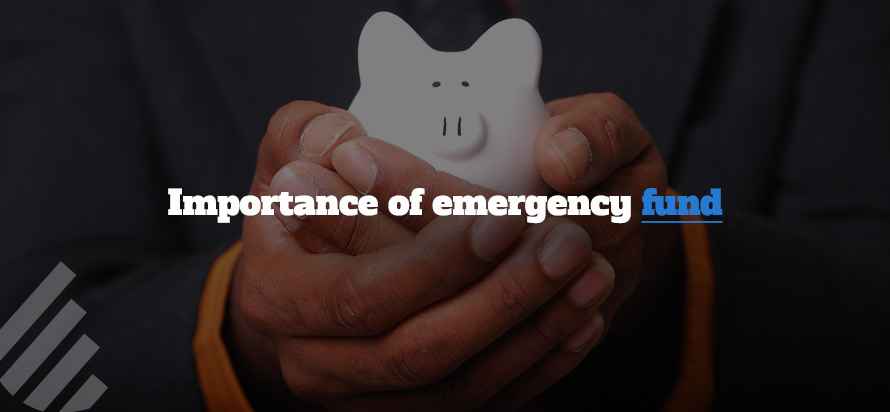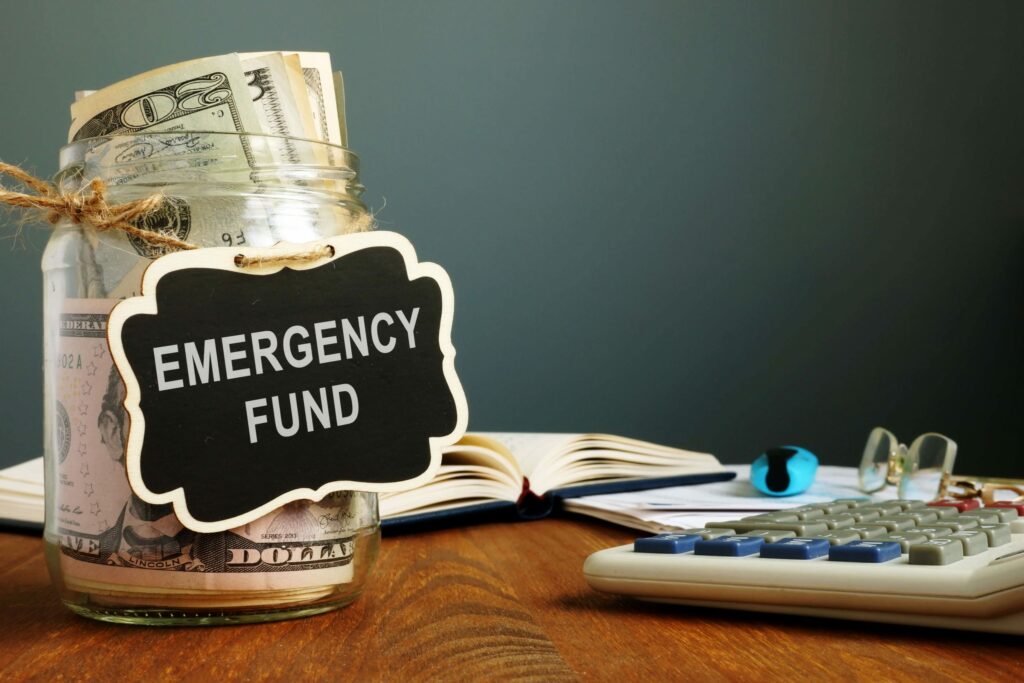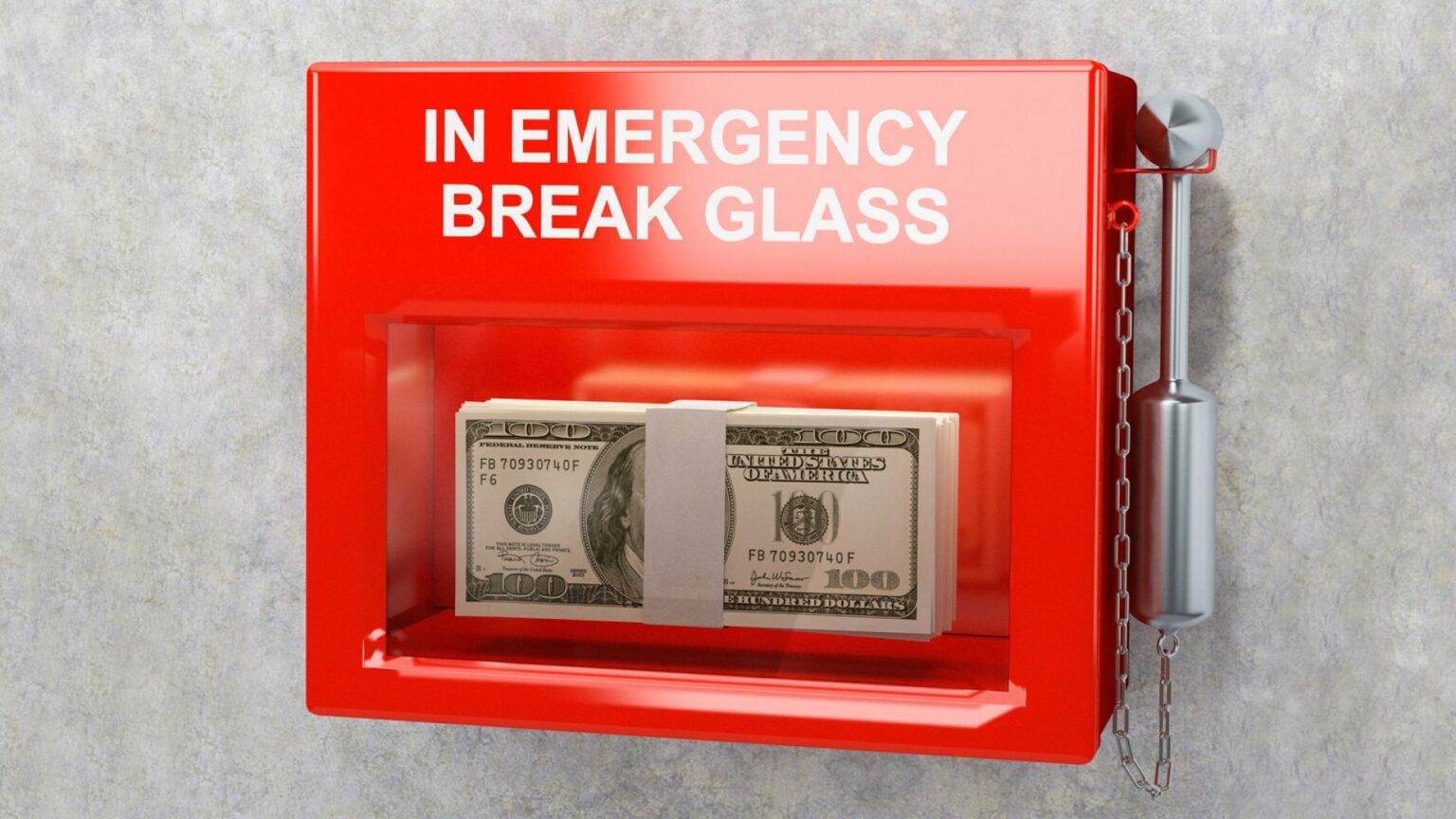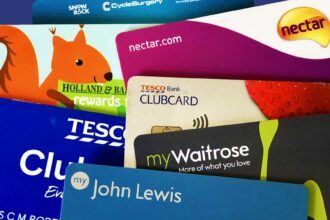Nobody likes to think about the possibility of a financial emergency, but the fact is that they can and do happen. In fact, according to recent studies, two-thirds of Britons have faced a crisis in the past year.
If you’re one of the unlucky ones who have had to deal with a sudden expense, you know just how stressful and overwhelming it can be. Not only do you have to find the money to cover the emergency expense, but you also have to worry about how it will impact your finances in the long run.
The good news is that there is a solution: an emergency fund. Setting aside a small amount of money each month can create a cushion to help you weather any financial storm. So don’t put off tomorrow’s troubles; start building your emergency fund today.

What Is an Emergency Fund and Why Is It Necessary?
Most people in the UK know that they should have an emergency fund. But many people put off creating one because they don’t know how or where to start.
An emergency fund is simply a savings account in which you set aside money for unexpected expenses. These expenses can range from car repairs to medical bills to replacing a broken appliance.
The key reason why you need an emergency fund is that if the worst were to happen and you were to lose your job and you don’t have any savings, you’ll likely have to resort to expensive credit cards or loans to cover unexpected costs. This can quickly get out of hand; before you know it, you’re in significant debt with ever-increasing interest payments. Or worse still you don’t have access to any lending and therefore in a much stickier situation.
It’s much better to be safe than sorry, so start building your emergency fund today!
What Can You Do Now to Begin Building Your Emergency Fund?
One way to get started on building your emergency fund is to set up a budget and stick to it. Take a good, hard look at your current spending habits and see where you can cut back, even by a little bit. You may be surprised how much money you can save by making minor changes to your daily routine.
Another great way to save money is to take advantage of sales and discounts at your local grocery store or clothing outlet. And finally, make sure to put a portion of every paycheck into your emergency fund so that you can build it up over time. Just think of the money you could save by cutting out that Starbucks or a packet of cigarettes every few days….
How Much Should You Save for an Emergency Fund?
How much you save for your emergency fund will depend on your unique situation. However, a good rule of thumb is to have enough saved to cover between three and six months’ worth of living expenses. This will give you enough breathing room to cover unexpected costs without having to go into debt.
If you have a family, you’ll probably want to save more than someone who is single. And if you’re self-employed, you’ll want to save even more, as there’s no guarantee that you’ll be able to find another job quickly if something happens.
However, the most important thing is to start saving today, even if it’s just a tiny amount. Every little bit counts; the sooner you start saving, the more money you’ll have in the long run.
What Are the Best Ways to Use an Emergency Fund?
In the UK, it’s wise to have an emergency fund of some kind. But what are some of the best ways to use this money when needed? Well, for starters, you need to ensure that your emergency fund is only used for essential needs. That might include things like rent payments, food costs, and medical bills.
You’ll also want to ensure that you’re keeping track of all your expenses to know where every penny is going and when. Keeping a close eye on your emergency fund ensures that the money is available for when it’s really needed most.
Finally, another excellent use for an emergency fund is for investments. This could be something like a savings account where you can earn additional interest on your money or even a low-risk investment option like bonds. This way, you’re still making the most out of your emergency fund while also having access to it should you need it in a pinch!
What Happens if You Don’t Have an Emergency Fund?
If you don’t have an emergency fund, you’re biting off more than you can chew. You might have to turn to costly and unregulated lenders without any savings to cushion unexpected costs. Not only is this incredibly risky—you could end up paying back extortionate interest rates—but it could also leave you open to fraud.
Alternatively, if you have no other option but to cover the cost of the emergency expense using your own money, that could leave a hefty dent in your day-to-day budget and put pressure on other areas of your finances. This could mean that you fail to meet essential payments such as rent or bills, leading to bad credit ratings or even bankruptcy.

Does Insurance Count as an Emergency Fund in the UK?
Does insurance count as an emergency fund in the UK? The answer is not necessary. Insurance —from a basic property or car insurance to more complex life insurance policies are designed to help protect you from financial losses in the event of a disaster or accident. While this kind of coverage can provide some valuable protection, it’s important to remember that it won’t necessarily cover more common, everyday financial needs.
Ultimately, having a separate emergency fund dedicated to covering unexpected costs can be beneficial and more effective than relying solely on insurance. This kind of fund will help you weather any incidental expenses that arise outside of situations that are covered by your insurance plan. So if you’re looking for a way to protect yourself and your family from financial hardship, consider setting up an emergency fund today.
Bottom Line
Even if you’re fortunate enough never to experience a significant financial emergency, having an emergency fund is still one of the most important things you can do for your financial security. And in today’s uncertain economy, it’s more important than ever to be prepared for the unexpected.
So if you don’t have an emergency fund yet, now is the time to start building one. It may seem like a challenging goal, but it’s definitely achievable if you start small and make a commitment to saving your money. And the peace of mind that comes with knowing you have a cushion to fall back on in case of a crisis is definitely worth the effort.















Recent Comments